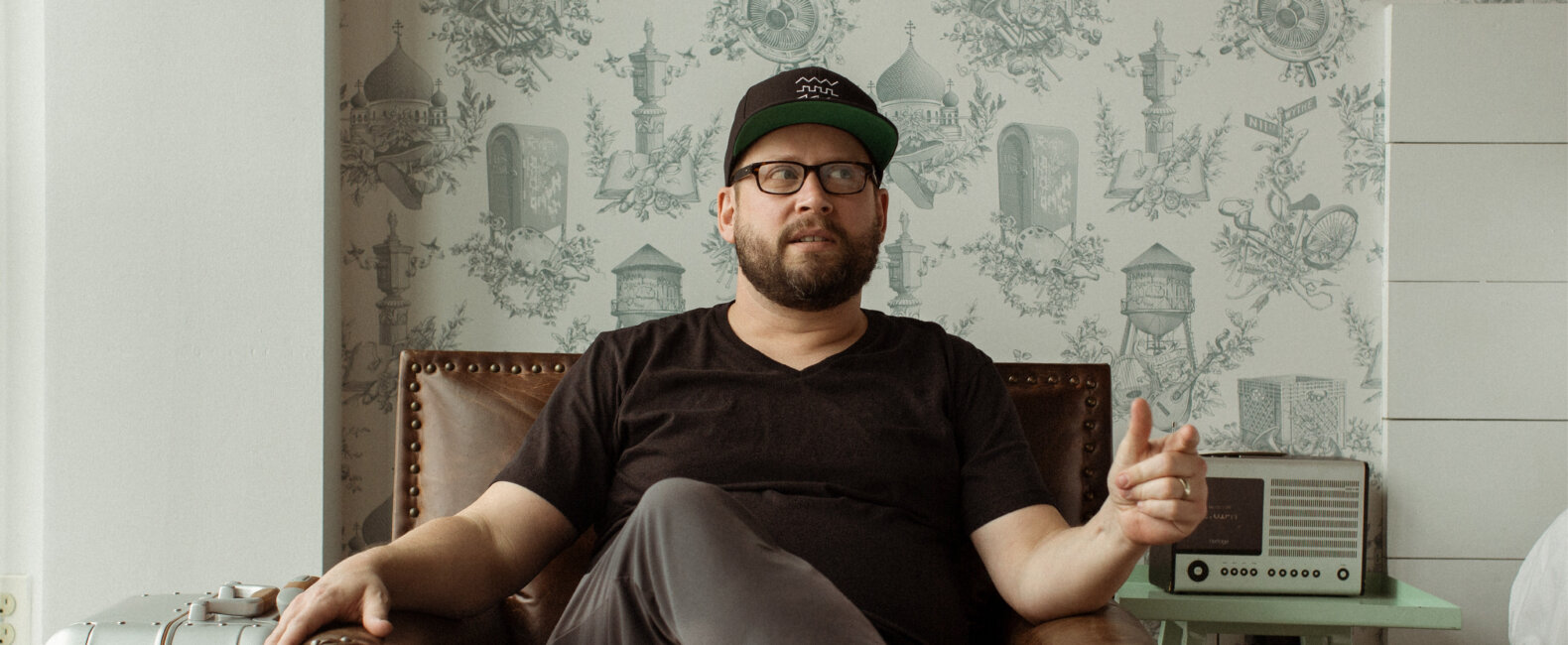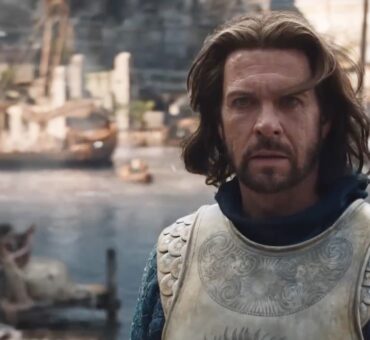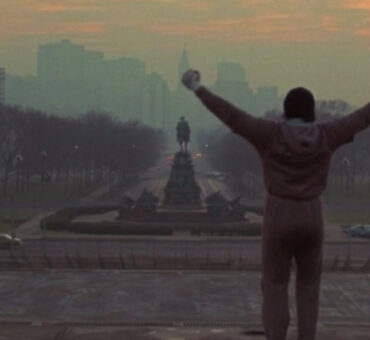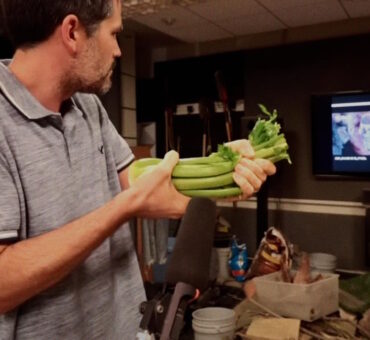Creative Director of Defacto Sound and host of the Twenty Thousand Hertz podcast, Dallas Taylor, had a vision to create a podcast that could capture the imagination of anyone who tuned in. His desire was to stretch himself creatively while sharing his love of sound with a broader audience.
Like a sonic time capsule, each episode of Twenty Thousand Hertz is a deep dive into the world’s most recognizable and interesting sounds—the Netflix Ta-Dum, the Windows startup sounds, and the TikTok text-to-speech voice, to name a few. As familiar as they are, most people don’t know the stories behind them.
Dallas Taylor’s mission is to tell immersive and dramatic stories about interesting sounds. And a large part of that storytelling is the Musicbed songs he uses. We talked to Dallas about how he started Twenty Thousand Hertz, how he turned his passion project into a reality, and what role music plays in the storytelling and production of his podcast.
Why did you start a podcast?
I wanted to make something for myself and build a passion project for the studio. With my company, Defacto Sound, I had mentally limited myself to only scratching my creative itch with the projects that were sent to me from a client. I started yearning to stretch myself creatively and make something for both myself and for the general public.
I didn’t know if it would be a YouTube channel or a podcast at first, but the more I thought about it, the more I wanted to put myself in a creative box. Stories about sound, only with sound. I had loved podcasts for years and connecting with people through a podcast is very intimate compared to other forms of human communication. I’m keenly aware that I’m millimeters away from a listener’s eardrums, and quite literally most of the time in someone’s head.
I heard a quote, “Great companies know how to capitalize off of their waste.” And I asked myself: What is the waste of Defacto Sound? The answer was unbilled time. So, I set out to fill that unbilled time with Twenty Thousand Hertz.
What influenced the theme of your podcast?
I’ve been a podcast listener for many years, particularly, This American Life, 99% Invisible, and Radiolab. I wanted to make something in that vein; to that high storytelling and production level, but also make something fun, poppy, and surprising. I wanted to find out if I could use a seemingly innocuous subject, like sound, to convey deep human emotion—delight, joy, surprise, and sadness.
What was the most challenging aspect of producing your podcast?
We’re approaching 170 episodes, and each one of them takes roughly 250 to 300 hours to make. The most intimidating part of the process is investing the amount of time and resources from my company to craft it to the caliber the subject matter deserves. I also intentionally hire external writers who are not experts in sound because I want to make sure we use plain language to communicate with the general public.
How did you get Twenty Thousand Hertz off the ground?
There was a contest from Radiotopia called Podquest, where they put out a call for two-minute pitch trailers for new shows, and the winner would join Radiotopia, which was my favorite podcast network with two of the shows that inspired Twenty Thousand Hertz: 99% Invisible and Song Exploder. So, I submitted a two-minute trailer for Twenty Thousand Hertz. We learned so much about podcast-making during that process. I believe we made it to the final rounds, but the podcast that won, Ear Hustle, is incredible. I would say without Ear Hustle, Twenty Thousand Hertz wouldn’t exist.
Our first two episodes were only like 11 minutes long, and they took a year to make. The first one was about The Voice of Siri, and the second one was about the NBC chimes. Side note: one of my first jobs was at the NBC Studios when it was in Burbank, and I would pass by a giant mural every day that laid out the history of the chimes.
We were writing and rewriting—and posting sticky notes all over the wall—just trying to figure out story structure and how it works.
In the years prior, I had made acquaintances with Roman Mars at 99% Invisible, who is my sound & storytelling hero. He’s masterful in the way that he takes things around you and uncovers all of the beauty and art within them. Well, I was at a conference in Chicago called Third Coast. I was walking out to get a late-night dinner, and I ran into Roman. He says, “Hey, would you be interested in me playing your second episode on 99% Invisible?” And that’s really what turned everything on its head—it went from like 300 listens to 50,000 listens over the course of a week. That’s what seeded the entire possibility of Twenty Thousand Hertz being a sustainable business. Currently, we have roughly 5 million downloads per year. All thanks to that spark that was given to us by Roman.
What is the importance of music in your podcast?
Music curation is a significant part of the structure and the feel of the podcast. We’re always trying to find a balance of music that supports the voices without being too overbearing, but we also use music in a way where it can be a heavier influence. All the information in the podcast is present in the dialog, but if we remove the music from Twenty Thousand Hertz, frankly… our show is pretty boring. We need that movement; we need that emotional nudge. We use music extensively, and we don’t simply drop it into the timeline. We craft, re-edit, and use music in a moment-by-moment basis like sonic play-doh. It’s a huge part of how we push the story forward and keep the audience engaged.
In every scene, we aim to tap into a clear emotion with music. Are we going on a journey through this scene? Are we hinting at something larger? Are we trying to nudge someone emotionally in a direction so we can set up a rug pull? We can do that through music. Music is what makes information emotionally multi-dimensional.
What role does music play in the storytelling aspect of each episode?
Daily, we toil over music. Oftentimes we’ll work through a section where the words are emotional, but it’s not selling. We’ll swap the music track and the entire spirit of what’s being said becomes crystal clear. So, when the copy’s working, the story’s interesting, but it’s just not pushing forward, there’s almost always a music solution. There have been many eleventh-hour music swaps that gel the show together.
Is music a part of your creative process?
When I’m tracking my narration, I play the music that will be supporting the scene in my headphones. It’s like playing a duet. The music influences my performance. It’s definitely a push-and-pull between the way I perform and the vibe of the music.
What advice would you give to new podcasters who want to create unique content?
Make content for the world. I want my show to be for young children, grandmothers, and people around the world. If I made a show just for audio people, it would be so exclusive that I would be lucky to have a couple of hundred regular listeners. If we want to be inclusive, we have to write inclusively, and we have to think about an aunt, an uncle, an acquaintance, the person standing behind you at the grocery store, and people with entirely different backgrounds. Make content for everyone.
There are many times when being niche is appropriate, but the number one piece of advice that I could give is not to create content for your own echo chamber. When I made the mental switch from making niche content to making content for everyone, it became way more fun.
Header image photo credit: Natalie Shield




















































































